“This is the story of America. Everybody’s doing what they think they’re supposed to do.”
—from On the Road by Jack Kerouac
words to inspire before you expire
“This is the story of America. Everybody’s doing what they think they’re supposed to do.”
—from On the Road by Jack Kerouac
“[T]he only people for me are the mad ones, the ones who are mad to live, mad to talk, mad to be saved, desirous of everything at the same time, the ones who never yawn or say a commonplace thing, but burn, burn, burn like fabulous yellow roman candles exploding like spiders across the stars and in the middle you see the blue centerlight pop and everybody goes ‘Awww!'”
—from On the Road by Jack Kerouac
Hello again, class.
The War of the Worlds already had a lot going for it when I picked it up—I love a good story about aliens. For all of the novel’s pitfalls, it makes up for it by being one of the earliest science fiction novels ever written, inspiring sci-fi for years to come.
The narrator details the horror of aliens attacking Earth—the Heat-Rays, the giant tripods, the freakish shapes of the creatures themselves, the death, the chaos, the destruction of towns and homes . . . it’s all portrayed as graphically as a Victorian-Era novel can be. The narrator spends most of his time trying to get back to his wife, who may be dead already, and his journey shows him the diversity of both the Martians’ attacks and the chaotic human response.
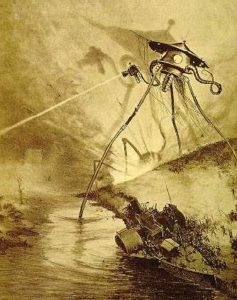 Don’t get me wrong—The War of the Worlds is a little dated. It’s well over a hundred years old, and sounds too much like Charles Dickens describing aliens and battle, which is jarring. Parts of the novel stumble over themselves, like when the narrator tells the story of what happened to his brother. Any modern writer wouldn’t bother explaining why two people are telling the story, but that’s too complicated for H. G. Wells’ audience—Wells’ is very careful in making his narrator explain the leap in the story.
Don’t get me wrong—The War of the Worlds is a little dated. It’s well over a hundred years old, and sounds too much like Charles Dickens describing aliens and battle, which is jarring. Parts of the novel stumble over themselves, like when the narrator tells the story of what happened to his brother. Any modern writer wouldn’t bother explaining why two people are telling the story, but that’s too complicated for H. G. Wells’ audience—Wells’ is very careful in making his narrator explain the leap in the story.
And, of course, the science is more than outdated . . . it’s plain wrong. Your science lesson for today: no Martians like the ones described live on Mars. The science is beyond fringe, and the theory of intelligent life on any planet in our solar system is just shy of impossible. It’s an interesting thought, but we all know the idea of aliens on Mars is closer to fantasy than sci-fi.
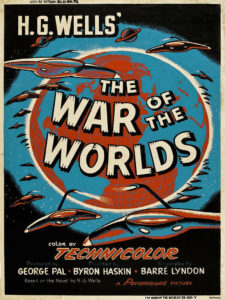
Movie Poster for The War of the Worlds (1953)
That doesn’t make The War of the Worlds bad . . . just dated. One of the strongest scenes, occurring over several chapters, involves the narrator trapped in a house with a panic-stricken man who keeps talking about the end of the world. He’s too loud, threatening to give away their position, and the narrator fights him to keep him quiet. The narrator kills him in the process. Wells isn’t just adding to the drama, here; this character’s loss of rational thought is a natural human response, and so is his murder by the narrator’s hands.
Wells is providing a pure account of the story, and letting the scientific, ethical, and horrific implications speak for themselves within each reader—leaving us only with a well-told story. All the best sci-fi/fantasy stories do this; they give us the story purely, and let us debate over scientific and moral hypotheticals. These are the kinds of stories that stand the test of time.
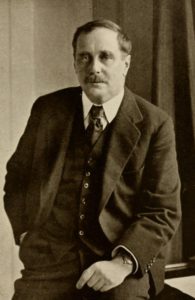
Author H. G. Wells
Like any good sci-fi novel, The War of the Worlds speaks through metaphors—aliens in stories are never just aliens. For Wells, a British man at the height of the British empire, the aliens are a distant unconquered people, with the power to vanquish Britsh forces. Wells is showing us that Britain’s treatment of smaller kingdoms and weaker people will come back to haunt them. The Martians treat humans as mercilessly as the British treated, for example, people of African nations.
It is a little too “white man’s burden;” the fear of the Martians can feel a little like fear of the “other-ness” of minority groups and foreign people. It’s subtle, but it’s there, and it’s worth noting how dated a philosophy it is. Even so, it seems to be a message of mercy, which is always good to read.
Next up, I’m jumping forward to Jack Kerouac’s On the Road—dropping the science fiction for a little more 1950s American grit. It’s not my cup of tea, but I’m always surprised by a good book—I’ll let you know what I find.
Until next week,
Prof. Jeffrey
” . . . I touched an emotion beyond the common range of men, yet one that the poor brutes we dominate know only too well. I felt as a rabbit might feel returning to his burrow and suddenly confronted by the work of a dozen busy navvies digging the foundations of a house. I felt the first inkling of . . . a sense of dethronement, a persuasion that I was no longer a master, but an animal among the animals, under the Martian heel. With us it would be as with them, to lurk and watch, to run and hide; the fear and empire of man had passed away.”
—from The War of the Worlds by H. G. Wells
“No doubt the thought that was uppermost in a thousand of those vigilant minds, even as it was uppermost in mine, was the riddle—how much they understood of us. Did they grasp that we in our millions were organised, disciplined, working together? Or did they interpret our spurts of fire, the sudden stinging of our shells, our steady investment of their encampment, as we should the furious unanimity of onslaught in a disturbed hive of bees? Did they dream they might exterminate us?”
—from The War of the Worlds by H. G. Wells
Good morning, class.
The 50-books list doesn’t provide a lot in the realm of horror. Sure, there’s Frankenstein and Hamlet, which both at least count, and even my current book The War of the Worlds portrays the horror element of classic sci-fi. But still, I don’t see much that’s horror, first and foremost.
There could be a good reason for that . . . horror is usually low quality; cheap thrills, shallow characters, bad storytelling. But there are exceptions to the genre, and Stephen King proves that with The Shining—so much so that it deserves a place on the list of books you should read before you die.
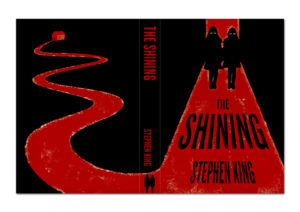 The story: a small, struggling family watches over the Overlook Hotel through the winter, as supernatural forces try to tear them apart. The father’s alcoholism leaves him vulnerable to the violent spirits in the hotel, and he becomes monstrously abusive. His wife tries to protect their little boy, who just happens to have the ability to communicate with the spirits around them—an ability called shining.
The story: a small, struggling family watches over the Overlook Hotel through the winter, as supernatural forces try to tear them apart. The father’s alcoholism leaves him vulnerable to the violent spirits in the hotel, and he becomes monstrously abusive. His wife tries to protect their little boy, who just happens to have the ability to communicate with the spirits around them—an ability called shining.
It’s a bad situation . . . and bad becomes worse. They are trapped by the snowstorm in a maze of a building that is crawling with fear, paranoia, rage, and evil. Of course, with Stephen King as the writer, tension smothers every page.
King’s novels are not high literature, in my opinion . . . but this is more compliment than complaint. Of the handful that I’ve read, his novels don’t have that air of pretentiousness found in most English-class pieces of literature. He is an entertainer, and he performs really well with tools like horror and suspense.
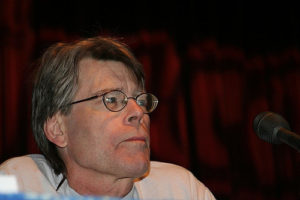
Author Stephen King
He’s said that his ideas are situational; the what-ifs inspire the story. “What if . . . a family is trapped in a haunted hotel?” Everything stems from that. So his characters are like pawns in a chess game, and we wait to find out who wins, who is sacrificed, and who makes a narrow escape. One of the reasons King’s stories are so well-received is because his approach is both the key to successful suspense and the essence of storytelling: the question “what happens next?”
If there’s any reason The Shining shouldn’t be on the list, it’s because horror isn’t for everyone. I might agree, if it wasn’t an amazing novel. The Shining handles fear in a way that is important to experience—fear of people who we think love us; fear of people who are under something else’s control; fear of large and imposing forces, and conquering that fear not through blindness or ignorance, but through courage and accepting fear.
Because The Shining handles fear better than any other book I’ve ever read.
It is important to mention that the abusive father character is spending most of his time trying to write a novel, and meanwhile Stephen King has suffered from alcohol abuse. So King isn’t approaching these characters by glorifying a real social problem. In fact, he’s pouring out his soul. That might be the one common denominator between all great works of literature. Food for thought.
See you next time.
Prof. Jeffrey
“And this Thing I saw! How can I describe it? A monstrous tripod, higher than many houses, striding over the young pine trees, and smashing them aside in its career; a walking engine of glittering metal, striding now across the heather; articulate ropes of steel dangling from it, and the clattering tumult of its passage mingling with the riot of the thunder.”
—from The War of the Worlds by H. G. Wells
“No one would have believed in the last years of the nineteenth century that this world was being watched keenly and closely by intelligences greater than man’s and yet as mortal as his own; that as men busied themselves about their various concerns they were scrutinised and studied, perhaps almost as narrowly as a man with a microscope might scrutinise the transient creatures that swarm and multiply in a drop of water.”
—from The War of the Worlds by H. G. Wells
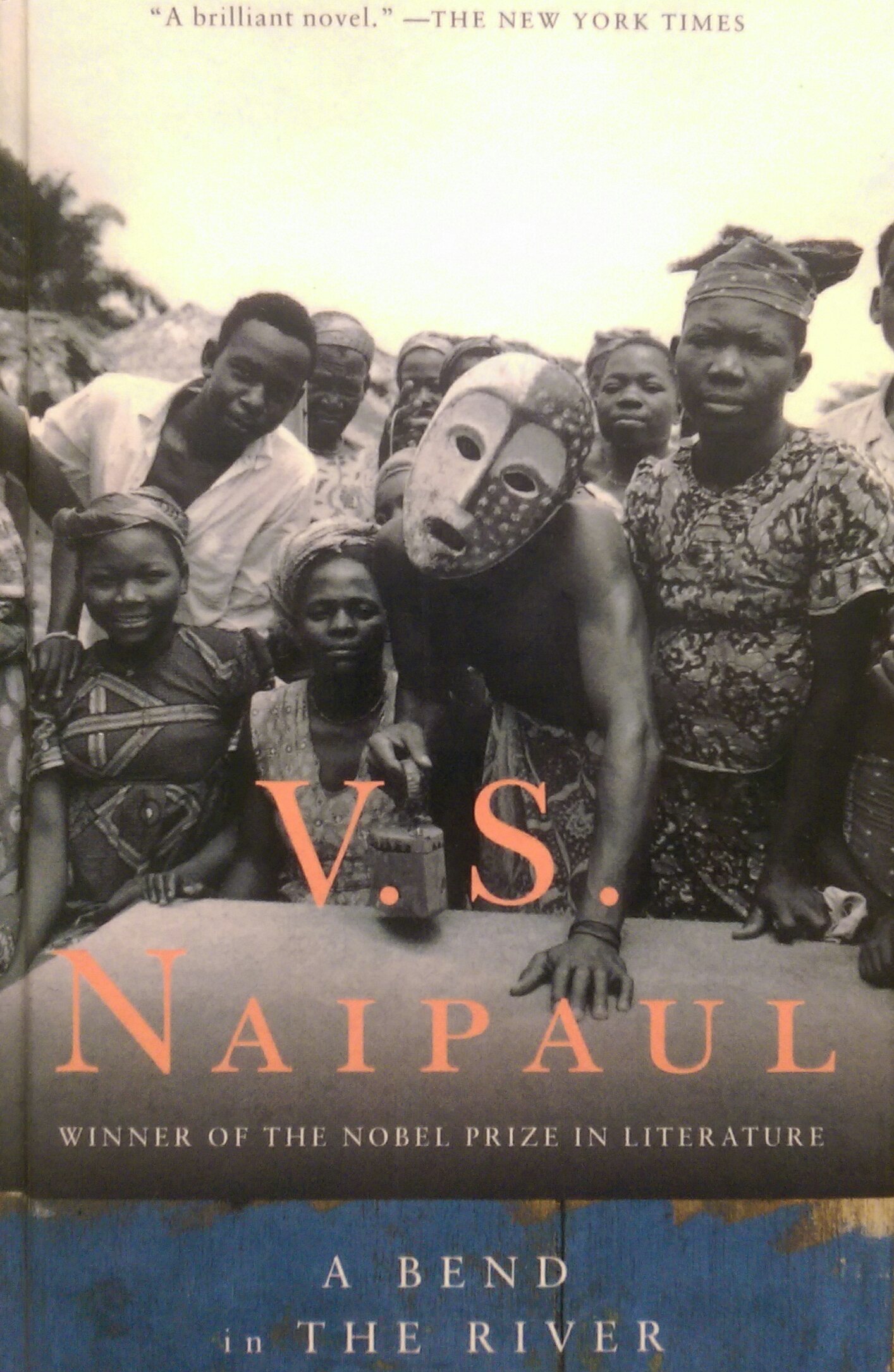 Another book finished! Welcome back, class.
Another book finished! Welcome back, class.
V. S. Naipaul’s A Bend in the River is a difficult novel. Stephen King once wrote that a person can write about anything, as long as they tell the truth (from his book On Writing). I could go out on a limb and say that every author on the 50-books list has done this—they’ve told their own truths. With A Bend in the River, Naipaul has told his ugly truths, and they were difficult to read—truths about racism, lost souls in postcolonial Africa, disregarded marriages, violence, and the decay of humanity.
The main character, Salim, is a shopkeeper in a small town on a central African river. He witnesses the chaos of an unnamed country around him: a rebellion against the old order, the establishment of a new order and a new leader, and its subsequent corruption and collapse. Meanwhile, Salim rotates through relationships with a series of characters, including an old family servant (whose loyalty decays like the country around them), a woman with whom he begins an abusive affair, and the son of one of his customers who rises through the country’s political ranks.
The characters all seem to be parts of a moving (or, rather, dying) machine. Sometimes, when a story does this well, the story and characters are given more meaning (I can’t say it enough—Ulysses is my favorite example of this). But A Bend in the River is more about meaninglessness . . . about being trapped in a dying system, unable to fix it and unable to escape. This is a place where hope becomes bitterness, narrated by a cynical man.
Salim’s cynical tone is the story’s greatest weakness. If it isn’t clear already, I didn’t enjoy reading the novel, and it’s mostly because of the philosophies and opinions of an unlikable narrator. Salim looks down on any dark-skinned people and acts violently towards the married woman he sleeps with. He seems to view this African country as better off under rule from Europe, as opposed to being allowed to exist on its own. He sounds always above everyone in his life.
At this point, I would usually claim that the narrator is unreliable, and that the author uses the narrator as an extra form of commentary. Even if that’s true, the artistic element is too subtle to be of any benefit. It’s hard to forgive any of these qualities because there’s no catch, no twist . . . Naipaul does nothing to show that he doesn’t mirror the negative qualities of his character, which makes me question any of the truths Naipaul claims to support.
And yet, for all that disgusts me, the tone is also the novel’s greatest strength. With Naipaul’s cynicism comes careful, brilliant writing. The content may be bleak, but the way it’s portrayed is mesmerizing, and it never shows any narrative cracks. If you need a reason to read it, it’s because A Bend in the River is one of those rare pieces of excellent writing—each word fits like a puzzle piece to a grand and beautiful image.
In the same way, I could compare it to Graham Greene’s The Quiet American (which I’ve written about here), and lots of critics have compared it to Joseph Conrad’s Heart of Darkness (blog post pending). If only the story didn’t feel so rotten at the core, I could see A Bend in the River being one of my favorite novels ever written.
Next, I’m reading The War of the Worlds by H. G. Wells. I’m happy to put A Bend in the River behind me.
I’ve noticed that I have a tolerance for novels I don’t like (at least well-written novels I don’t like). I think that means that for any book, the plot can involve anything and the characters can do anything, and as long as the author knows what makes a story worth telling, I can read it. Some people can’t do the same—an unlikable character or a goofy plot makes them put a book down in a heartbeat.
Some books help you figure out what kind of reader you actually are. They’re worth something for that, even if you don’t enjoy the experience.
On that note, I’ll see you next week.
Prof. Jeffrey
“[O]ut of my great pain, I had an illumination. It didn’t come in words; the words I attempted to fit to it were confused and caused the illumination itself to vanish. It seemed to me that men were born only to grow old, to live out their span, to acquire experience. Men lived to acquire experience; the quality of the experience was immaterial; pleasure and pain—and above all, pain—had no meaning; to possess pain was as meaningless as to chase pleasure.”
—from A Bend in the River by V. S. Naipaul
© 2025 50 Books to Read Before You Die
Theme by Anders Noren — Up ↑
Recent Comments